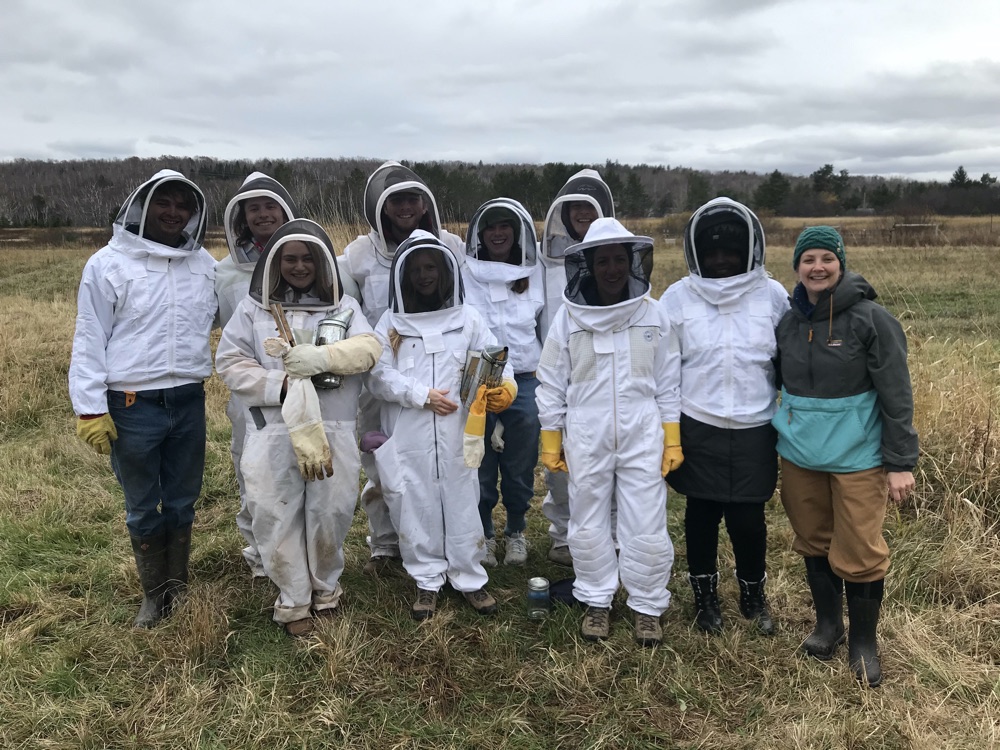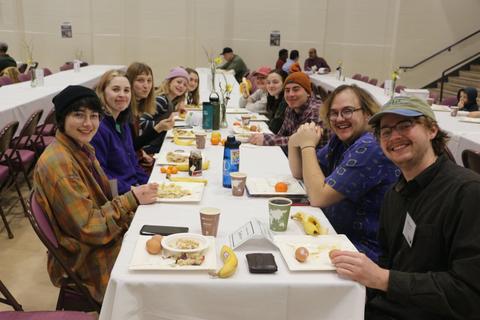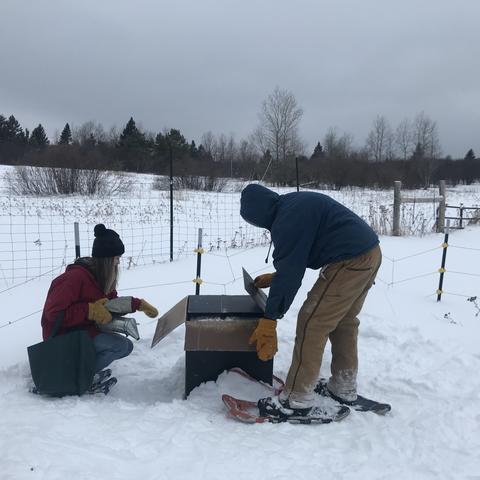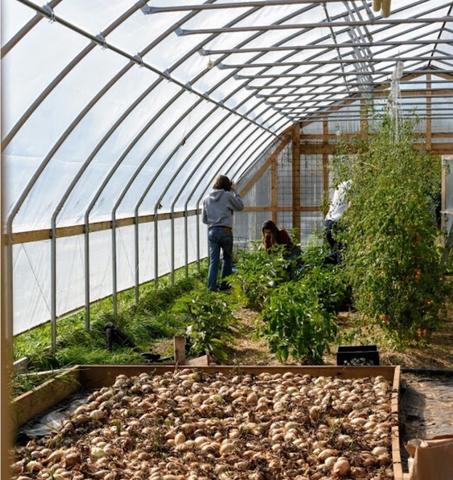
Dr. Teresa Bertossi (Geography and Philosophy) enters the classroom, arms filled with a mix of posters, books, and folders packed with resources from a bee symposium she and a group of students recently attended. After setting down the materials, she conducts a debriefing session with students as they haven’t met in the classroom for a couple of periods.
The class is ES 3100: “Sustainable Food Systems,” and they’ve been meeting with community organizations, such as the American Indian Community Housing Organization (AICHO); attending events concerned with food sustainability, such as the Beekeeping and More! Symposium at Fond du Lac Tribal and Community College; and conducting research at local co-ops, farmer’s markets, and grocery stores. As students talk about their experiences, Bertossi connects their analysis to course concepts, readings, assignments, and projects.

Students in the class are working in groups to research food systems before ultimately writing a report and giving a presentation during Earth Week. One gets the impression that Bertossi is the experienced guide in the passenger seat, but students ultimately are in the driver’s seat navigating the roads of information toward the end goal of understanding sustainable systems.
Bertossi’s Fall 2019 ES 3500: “Ecological Economics” class also asked students to ground their research in local needs. Joe Murphy (Environment and Sustainability ’20) worked with three other students to create a CSA (community supported agriculture) focused on selling produce to the UMD community. After looking at other models, they proposed creating themed boxes such as a spice-themed box or greens-themed box, pairing up with community partners to sponsor or contribute to the shares on a weekly basis, investing in a seed bank where seeds could be distributed in shareholders’ own gardens, and pursuing off-season CSA methods by featuring canned or fermented options.

Emily Rakos (Environment, Sustainability, and Geography ’20) also created a CSA based on her experience working at the Land Lab. Her CSA aimed to start small and feasible with fifteen shares available to purchase and then expand from that base in future years.
The project helped students think beyond merely the logistics of a CSA. Rakos explained, “a CSA not only helps connect more people to the Land Lab but also to sustainable agricultural practices. Having a CSA additionally helps sustain those agricultural commons and provides financial security to the farmer year round, despite possible market fluctuations or unfavorable weather conditions. Lastly, different payment options promote food accessibility to those who may not be able to afford to pay full price immediately….I am definitely interested in working with low income neighborhoods to provide better access to healthy and affordable foods.”
Murphy is also passionate about helping and educating others in regards to sustainability and environmental science. He counseled, “Consider looking into a CSA in your area! If you live in the Twin Ports region, we are blessed with many fantastic options (see localharvest.org for offerings). Visiting one of the many farmers markets is a great way to learn more about them and build direct relationships with the farmers, too.”
